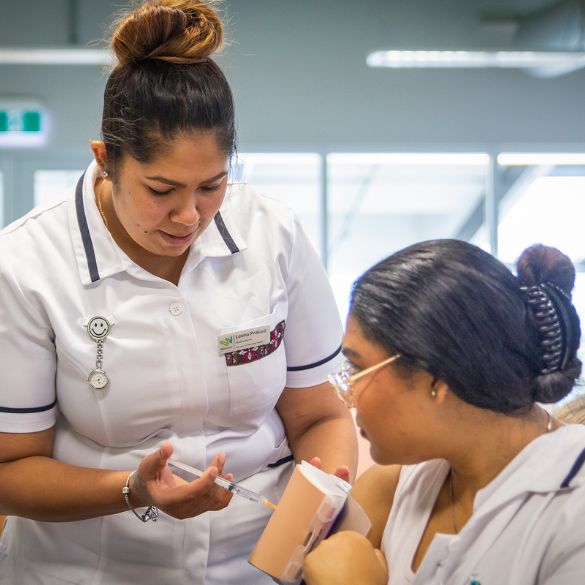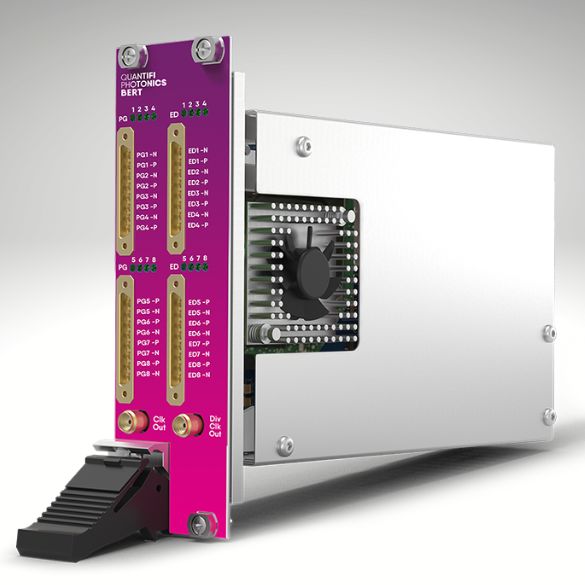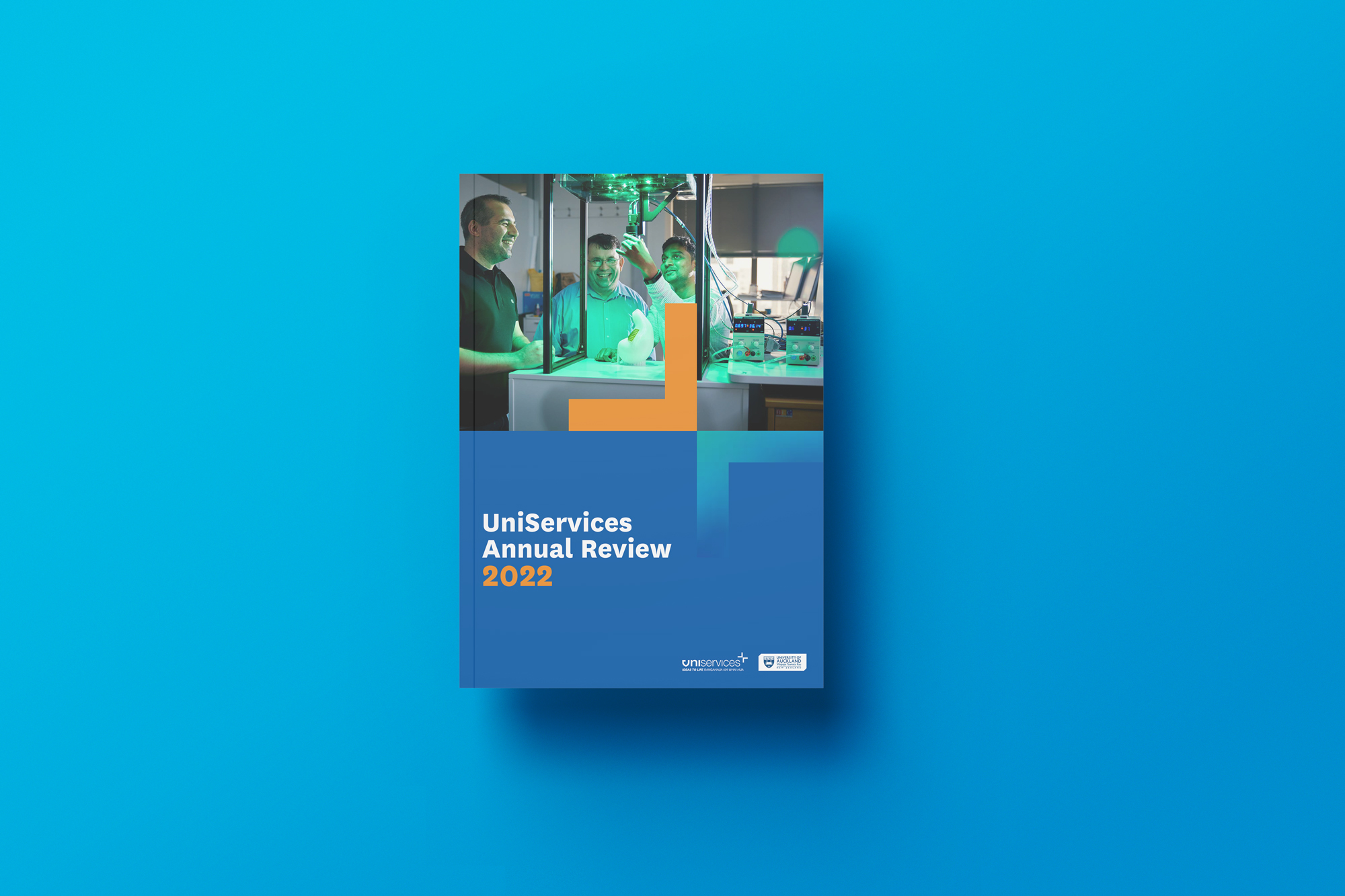Performance & Impact

Hangaia te ā mua
Create the future
UniServices is the largest R&D company of its kind in Australasia. We’ve invested in over 75 companies and licensed more than 540 patent families. We’ve also delivered great community impact.
UniServices by the Numbers
8
new companies launched in 2023
27
technologies licensed in 2023
$41m
– Fair value of the University of Auckland Inventors’ Fund at the end of 2023
28,592
Covid-19 vaccinator course completions through IMAC since 2021
36,659
– Clinical queries answered on IMAC’s 0800 IMMUNE phone line in 2023
6,755
people engaging with online courses through Whāraurau in 2023
5,366
people attending training and workshop courses through Whāraurau in 2023
3,900
educators received professional training and development through Tui Tuia | Learning Circle in 2023
4,700
MRI scans performed by CAMRI in 2023
4000+
– Clinical staff in 20 hospitals trained in acute care simulations designed by NetworkZ in the past 8 years
2022 Highlights
Research Impact
Understanding dementia
Auckland researchers working with American researchers published the groundbreaking finding that poor mental health in earlier life is a strong indicator of risk for later dementia. The study followed 1.7 million New Zealanders for 30 years. Another team led by Dr Makarena Dudley embarked on a $1.1 million, three-year study to determine the prevalence of mate wareware (dementia) among Māori.
Prime Minister’s Science Prize
A team led by Distinguished Professor Dame Jane Harding has been nationally honoured for work on blood sugar imbalances that can cause brain damage in newborns. The Neonatal Glucose Studies Team’s finding that sugar gel rubbed inside a baby’s cheek improves low blood-sugar levels has become a first-line treatment around the world.
Improving geothermal energy
Geothermal energy has a green reputation – but it’s not zero-carbon because it releases naturally occurring underground gases. With $6 million in funding, a team at the University’s Geothermal Institute aims to turn greenhouses gases into rock, permanently trapping it underground. The technology could be applied to other industries too.
Reviving mīmiro
Researchers led by Professor Anthony Hoete of the School of Architecture and Planning are reviving an ancient Māori construction technique and testing its seismic resilience. The mīmiro technique gave wharenui and other buildings remarkable structural stability, but with perhaps only one remaining whare in Aotearoa built with the method, the knowledge is endangered.
Community Impact
Supporting Covid-19 vaccination
The Immunisation Advisory Centre (IMAC) plays a significant role in educating the country’s immunisation workforce. More than 5000 IMAC courses were completed by vaccinators across the motu in 2023. IMAC also advised healthcare staff through its 0800 phone line, answering more than 36,000 calls during the year. IMAC also provided expert advice to the government, and responded to continuous media queries.
Understanding whānau experiences
Growing Up in New Zealand is the largest longitudinal study following the lives of more than 6,000 children, including some 1,200 tamariki Māori, since their pregnant mothers volunteered for the study in 2009. It offers evidence and insights into child and youth health and wellbeing in New Zealand for policymakers, researchers, community advocates, and other stakeholders.

Investment Impact

Better optical communications
Quantifi Photonics, a University of Auckland spin-out, manufactures equipment for photonics testing and measurement in areas such as optical communications. It raised US$15 million in Series C funding to accelerate the development of test solutions for datacom and telecom equipment manufacturers. It also acquired SmarTest Electronics, giving it research and manufacturing facilities in Thailand.
Diagnosing gut disorders
Alimetry is an Auckland based MedTech company that develops advanced wearable medical solutions that improve gastrointestinal care. Founded in 2019, based on a decade of groundbreaking science and engineering out of Waipapa Taumata Rau, the University of Auckland, Alimetry is striving to develop solutions that are more effective, easier on patients, and more efficient for healthcare providers. In 2022, Alimetry received FDA approval in the US for its flagship Gastric Alimetry device, a non-invasive tool to diagnose disorders of the upper gut, and has raised $16.3 million in Series A funding.

Check out our 2022 annual review
Learn what we achieved in advancing and investing in research and delivering services and projects with community impact.

